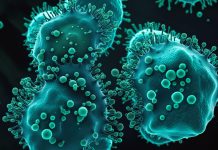The Californian COVID mutation appears to be as infectious as the UK or South African mutations – but does it have the potential to be more deadly?
A research study published in JAMA explained: “A novel variant of SARS-CoV-2, CAL.20C, was identified, which emerged in Southern California contemporaneously with the local surge in cases.”
By 22 January, this Californian COVID mutation had been detected in 19 other States and six other countries. It had become responsible for 44% of all infections in South California.
Now, a month later, where do we stand?
Right now, more research is necessary to understand the impact of the new mutation on COVID vaccination. No papers have been peer-reviewed and published on the Californian COVID mutation. The South African, UK, and Brazilian variations have been part of several peer-reviewed investigations and clinical trials by drugmakers such as Moderna and Johnson & Johnson, who wanted to test their efficiency against a mutated form of COVID.
All vaccine efficiencies took a hit, of atleast 10% in most cases. This is because of a spike mutation, that makes the virus eight times more infectious.
According to Science Mag, the Californian mutation spread faster in one nursing home than other forms of COVID did in other homes.
Currently, the Californian mutation is under investigation. It was discovered accidentally, by a researcher who was looking for the B117 UK mutation.
Is the Californian mutation more life-threatening?
It is unclear if this variant is truly more deadly, but it appears to be more infectious. The mutation emerged in June or July, 2020, which means that it has been circulating for a significant amount of months.
The JAMA study proposed that patients with the Californian mutation were 4.8 times more likely to be admitted to the ICU, and 11 times more likely to die. They warn of collection bias, as there is not much data available on the new mutation.
William Hanage, an epidemiologist at the Harvard T.H. Chan School of Public Health who was not involved in the research, said to the NYT: “There’s not evidence to suggest that it’s in the same ballpark as B.1.1.7.”
Dr Jasmine T Plummer, Cedars Sinai Medical Center and author of the JAMA study, explained: “The functional effect of this strain regarding infectivity and disease severity remains uncertain.
“Nevertheless, the identification of this novel strain is important to frontline and global surveillance of this evolving virus.”














